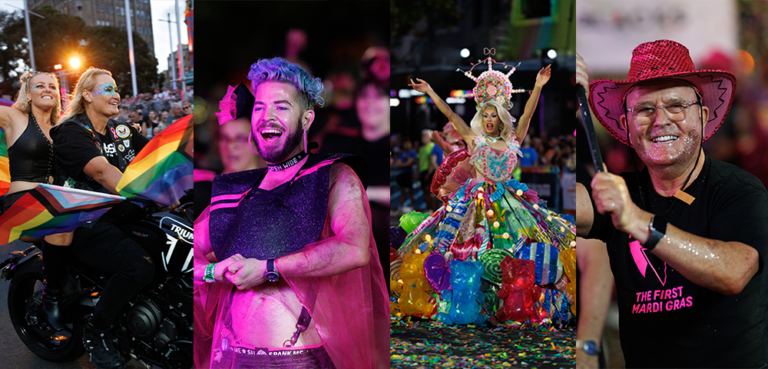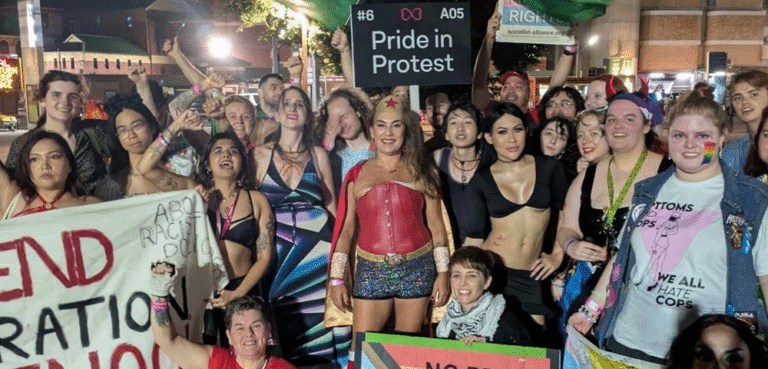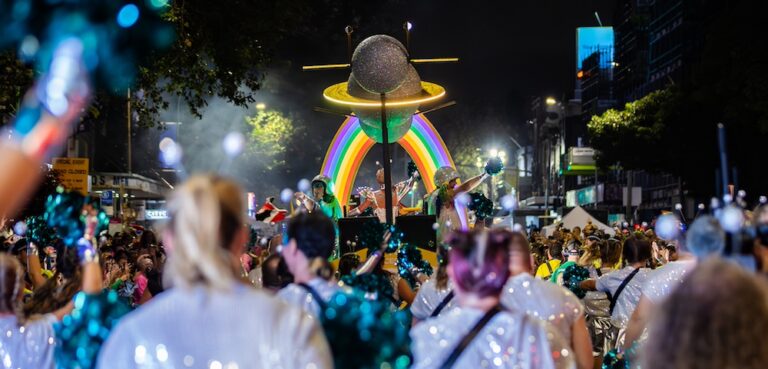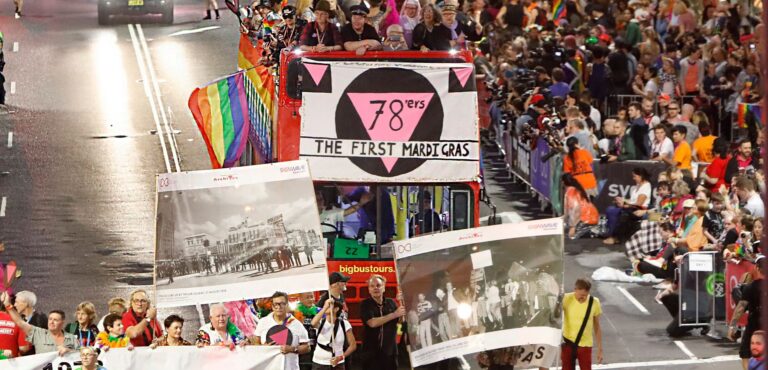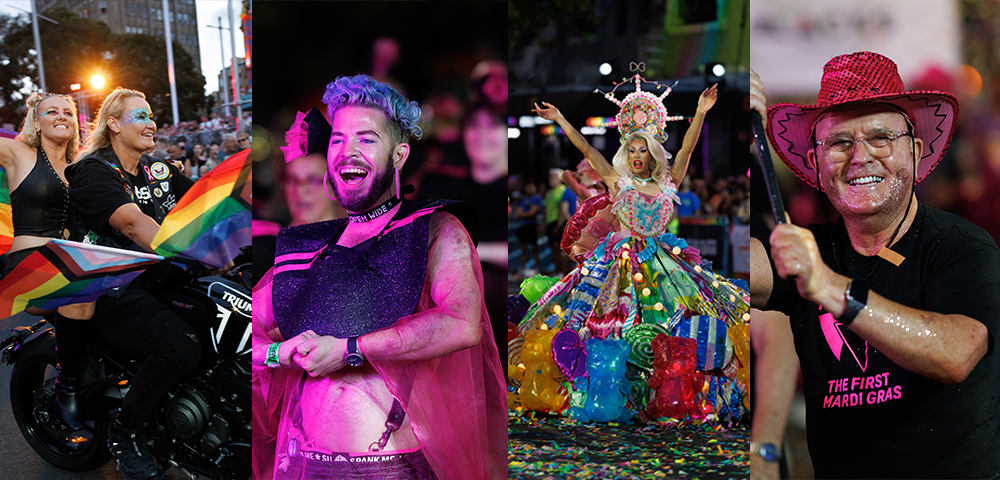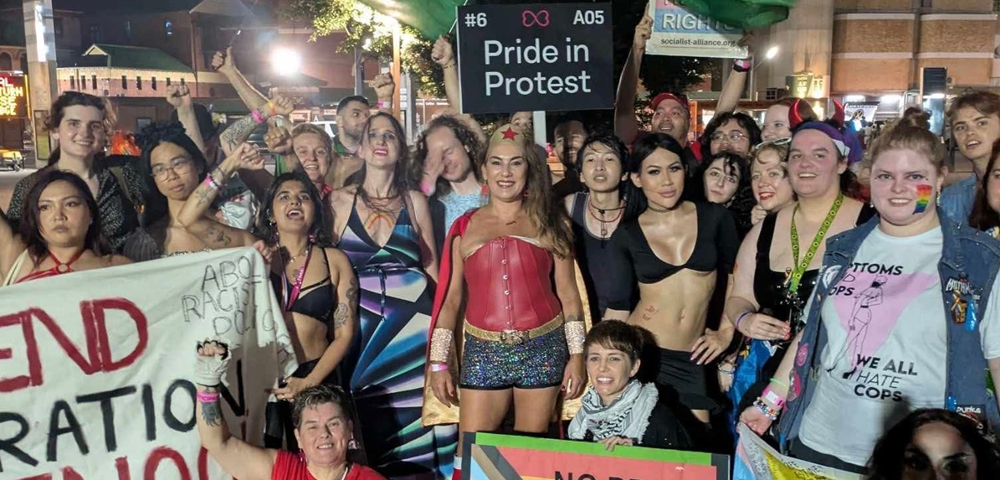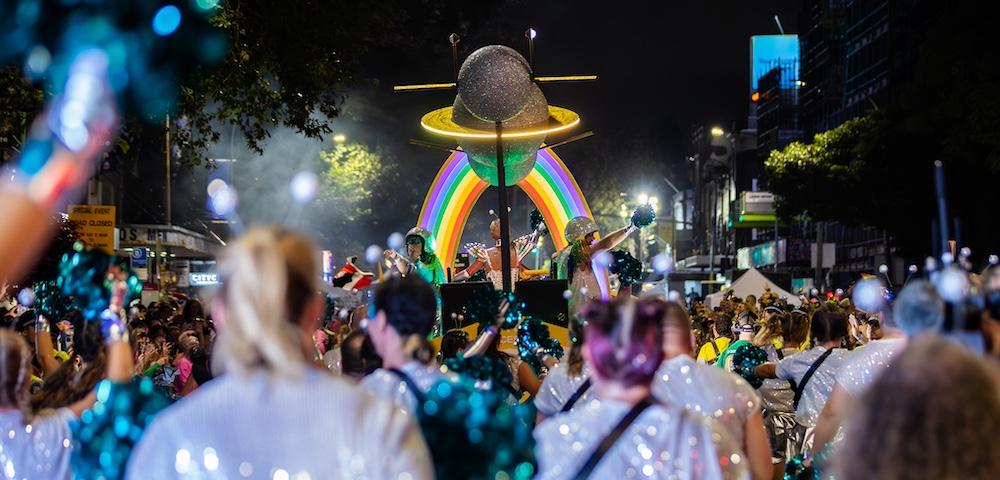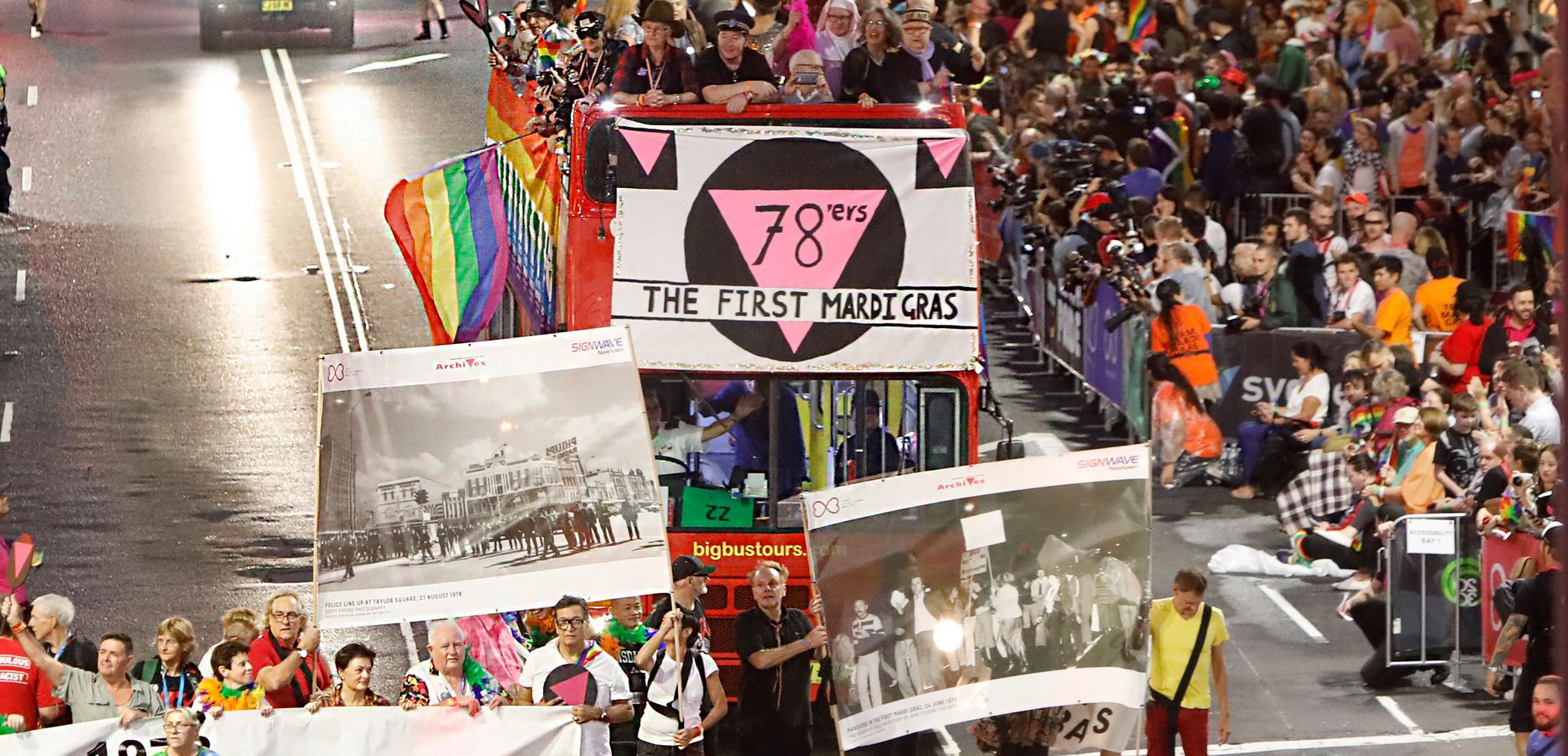
Queer Screen documentaries
The recent film A Beautiful Mind about Nobel Prize-winning mathematician John Nash completely ignores the fact that he was attracted to other men and that an arrest for indecent exposure in a public toilet led to his losing his government job and high level security clearance. It reminds us that even in an age where gay and lesbian issues seem to grab their fair share of attention, there is still a tendency to de-gay our lives for the silver screen.
The documentary features in this year’s Queer Screen festival provide a welcome redress to this situation by providing some excellent films about gay and lesbian lives. These are not easy films which necessarily provide happy gay or lesbian role models but they portray complex individuals grappling both with their own identities and with the important issues of their day.
ESCAPE TO LIFE
Erika and Klaus Mann, the eldest children of Nobel Prize-winning novelist Thomas Mann (author of Death In Venice), were a remarkable duo who devoted themselves to both politics and literature. Coming of age in the 1920s, they inhabited the avant-garde world of decadent Berlin made famous in the novels of Christopher Isherwood and films like Cabaret.
Born less than a year apart, they often portrayed themselves as twins and although the events of a world at war separated them in the later years of their life, they shared a remarkable ongoing bond. Both were queer and their sexuality strengthened their sense of connection with one another and their sense of difference in a world quickly changed by the rise of Nazism.
This documentary is a collage of dramatised excerpts from their work, archival footage and interviews with surviving family and friends. Vanessa and Corin Redgrave provide the voices of Erika and Klaus.
Whilst Klaus was to make his mark as a novelist and critic, Erika’s life was in the theatre. She was a remarkable performer and the director/producer of The Peppermill Cabaret, which dared to produce anti-Nazi satire right up until the burning of the Reichstag. Later she toured with her company throughout Europe spreading the anti-Nazi message.
Klaus wrote several novels, most famously Mephisto, which was made into a film by Klaus Maria Brandauer and won an Academy Award for best foreign film in 1982. Completed in 1936, this scathing portrait of the Third Reich was written just after the pair had gone into exile from their native Germany. When the novel was first published in West Germany in the late 1950s, it became the subject of the longest lawsuit in the history of German publishing -“ dragging on for more than a decade before the Supreme Court finally banned publication.
Mephisto is based on Gustaf Gr?ren, whom Erika had married in her youth. Gr?ren, who had once been a flamboyant defender of communism, had a magnificent career in Nazi Germany under the auspices of Hermann G?g, where he had been the leader of theatrical life in the Third Reich. Mann wrote Mephisto to analyse the abject type of treacherous intellectual who prostitutes his talent for the sake of some tawdry fame and transitory wealth. The lawsuit against the book was brought by Gr?ren’s adopted son.
Klaus’s final years were marred by drug addiction and depression and he took his own life in 1949.
Erika was devastated by her brother’s death and spent much of the rest of her life promoting his work.
Â
TELL ME THE TRUTH ABOUT LOVE
The English poet W.H. Auden inhabited the same decadent Berlin as the Manns. It was in this environment in the late 1920s that he first started to grapple with the truth about love.
This documentary produced for TV by the BBC is slight as a biopic, focusing mainly on Auden’s love poetry as a lens to his larger world. But it provides a good introduction to the poet and his work.
Although in some senses a rather formal poet, Auden gained unexpected popularity after his poems were used for the movie Four Weddings And A Funeral. Interestingly his poetry has again come to the fore after the crisis of 11 September with a number of commentators seeing prescience in Auden’s poem September 1, 1939, which Auden wrote in response to Germany’s invasion of Poland.
In a piece in Slate.com written shortly after 11 September and provocatively titled Auden On Bin Laden, Eric McHenry writes of how weirdly prescient Auden’s poem seems. He goes on to comment:
Of course, that’s the point: zealotry and violence are cyclical -“ -˜The habit-forming pain,/ Mismanagement and grief:/ We must suffer them all again.’ The passages that had been playing through my head since I first saw the World Trade Centre footage seemed more specific to the past week than to the poem’s occasion. -˜Where blind skyscrapers use/ Their full height to proclaim/ The strength of Collective Man,’ and -˜Into the ethical life/ The dense commuters come.’ The poem, which is set in Manhattan, opens with the -˜unmentionable odour of death/ Offend[ing] the September night,’ something it could have done only figuratively in 1939, and the poem closes with a candlelight vigil: -˜May I [-¦]/ Beleaguered by the same/ Negation and despair,/ Show an affirming flame.’
Â
FASSBINDER’S WOMEN
German filmmaker Rainer Werner Fassbinder was another figure who earnestly grappled with both his sexuality and the events of his era. He told one interviewer that his aim was to bring together a Hollywood sense of beauty and a critique of society. The best thing I can think of would be to create a union between something as beautiful and powerful and wonderful as Hollywood films and a criticism of the status quo.
Sexuality was a key to both this aesthetic and to his critique. Fassbinder was matter of fact about his homosexuality and once told a critic: Homosexuals have been very self-pitying, and also most of them are dominated by a sense of shame, which the Jews haven’t had. The Jews have never been ashamed of being Jews, whereas homosexuals have been stupid enough to be ashamed of their homosexuality.
However, Fassbinder also had numerous and complicated relationships with women. In Fassbinder’s Women, Rosa von Praunheim, one of Germany’s most renowned contemporary filmmakers, provides a captivating documentary focusing on the people who knew Fassbinder best -“ the women in his life and films. Hanna Schygulla, Jeanne Moreau, Irm Hermann, Juliane Lorenz and many others relate their experiences working with the difficult auteur, and recount the influence he had on their personal and professional lives.
It is remarkable to watch these women recount stories of Fassbinder’s bad behaviour, which often tipped over into the blatantly sadistic, with a confused gleam of longing in their eyes. He seems to have had a hypnotising charm which made people forgive outrageous conduct. Fassbinder had an unhappy childhood and was sent away by his mother as a teenager because her new lover did not want the young boy around. Fassbinder once commented that the cinema was the family life I never had at home. This de facto family may have provided support but it was also a very dysfunctional unit.
Fast-living and fast-working, Fassbinder died of drug overdose in 1982 Munich, at the age of 36, while working on his last film, the homoerotic masterpiece Querelle.
Fassbinder once said, The more real things get, the more like myths they become. There have always been myths, but the myths of earlier times were, I’m convinced, bad ones, because they made people sick. So certainly, if we can tell evil stories to make people sick, we can also tell good myths that make them well.
The stories in these three documentaries and numerous others in the Queer Screen program -“ the lives and work of Oscar Wilde and contemporary New York artist Ross Bleckner are amongst others featured -“ go part way to the propagation of such good myths. Like all good myths these stories don’t all have happy endings but they challenge the way we see and thus hopefully the way we live in the world.
Â
Tickets for the Queer Screen Film Festival are available at www.queerscreen.com.au or by phone on 9233 6269.
